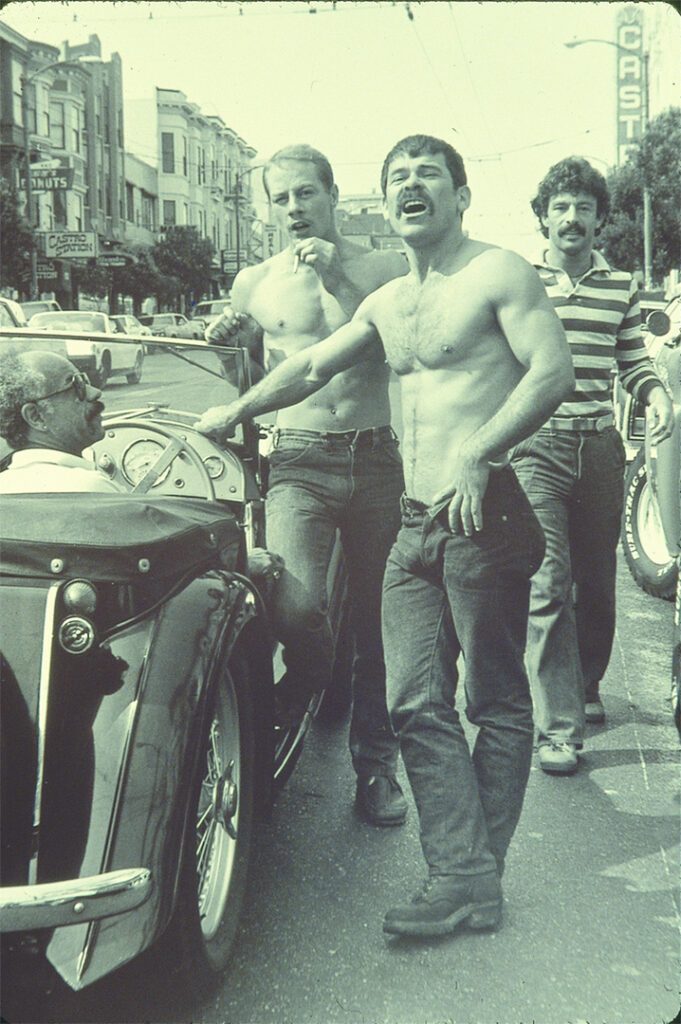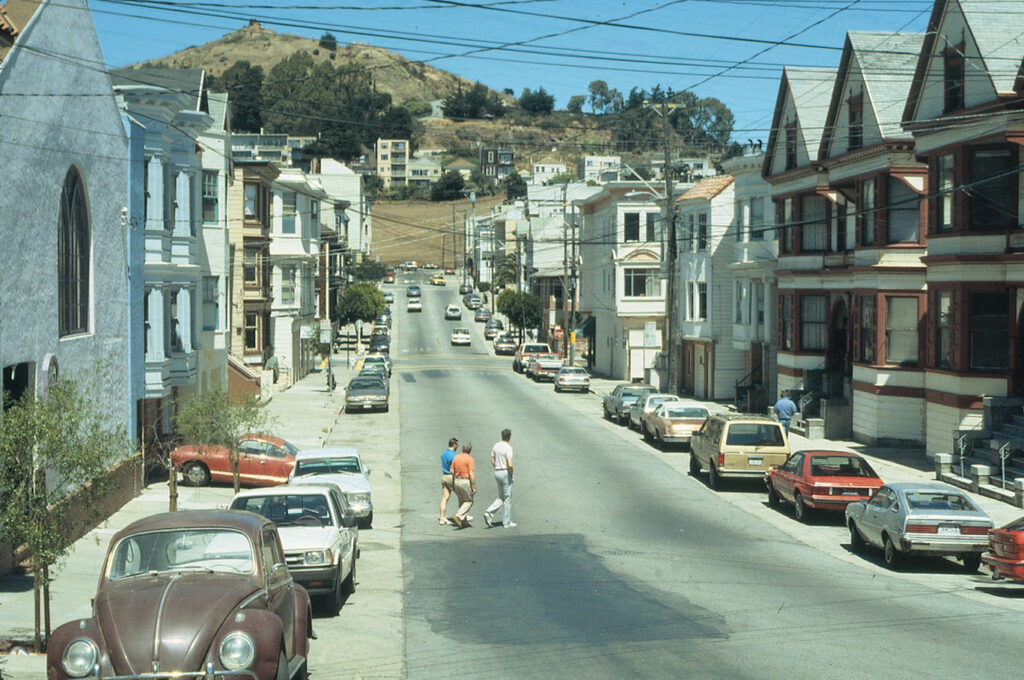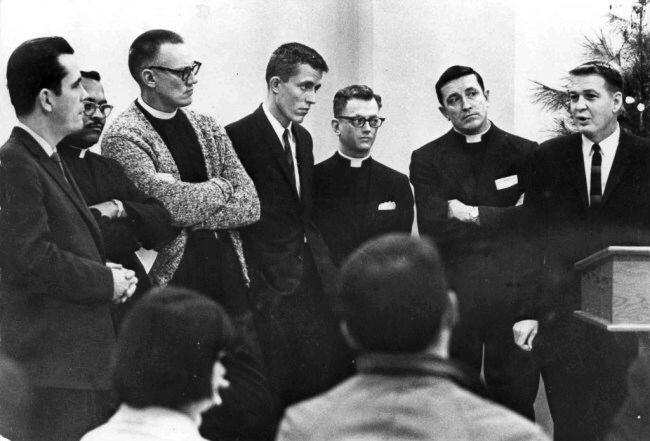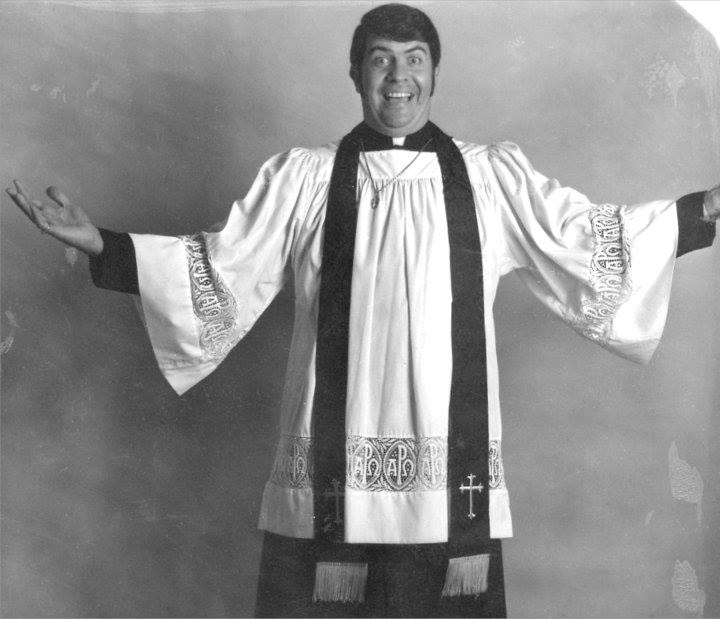Liturgy of Preparation
An organ plays as the MCCSF congregation gathers for a worship service. The music is an excerpt from Felix Mendelssohn’s Organ Sonata 6. MCCSF Archive, March 10, 1989.
The Metropolitan Community Church of San Francisco (MCCSF) worshipped in San Francisco’s Castro neighborhood throughout the 1980s and 90s. The Castro was the city’s iconic gay neighborhood – “gay mecca” to some, “gay ghetto” to others. Gay neighborhoods were places gay and lesbian people lived and made lives together – lives that included but went far beyond sex. The Castro had out and proud gay bookstores, dry cleaners, hardware stores, restaurants, insurance companies, and a legendary movie theater. MCCSF was its neighborhood church, a congregation founded on a message of gay acceptance and ministering to gay people by gay people.


LEFT: Men in front of the Castro Theater, circa 1978-1979. Photo by Crawford Wayne Barton. Courtesy of the Crawford Wayne Barton Collection, Gay, Lesbian, Bisexual, Transgender Historical Society. RIGHT: Looking north on Eureka Street, with MCCSF on the left, 1989. Photo by Max Kirkeberg. Courtesy of the Max Kirkeberg Collection, San Francisco State University.
One was a New Year’s Eve party in 1965. It was sponsored by the Council on Religion and the Homosexual (CRH), one of the first efforts at building connections between gay and lesbian people and religious leaders in San Francisco. Despite assurances made by the police beforehand, the event was raided and guests were arrested. This led to prominent clergy – complete with collars – speaking out publicly, criticizing the police and supporting LGBTQ people.
Liturgy of Preparation
4

“Seven Angry Ministers”: Leaders of the Council on Religion and the Homosexual, January 1965. Photo by Joe Rosenthal. Courtesy of the Phyllis Lyon and Del Martin Collection, Gay, Lesbian, Bisexual, Transgender Historical Society.
